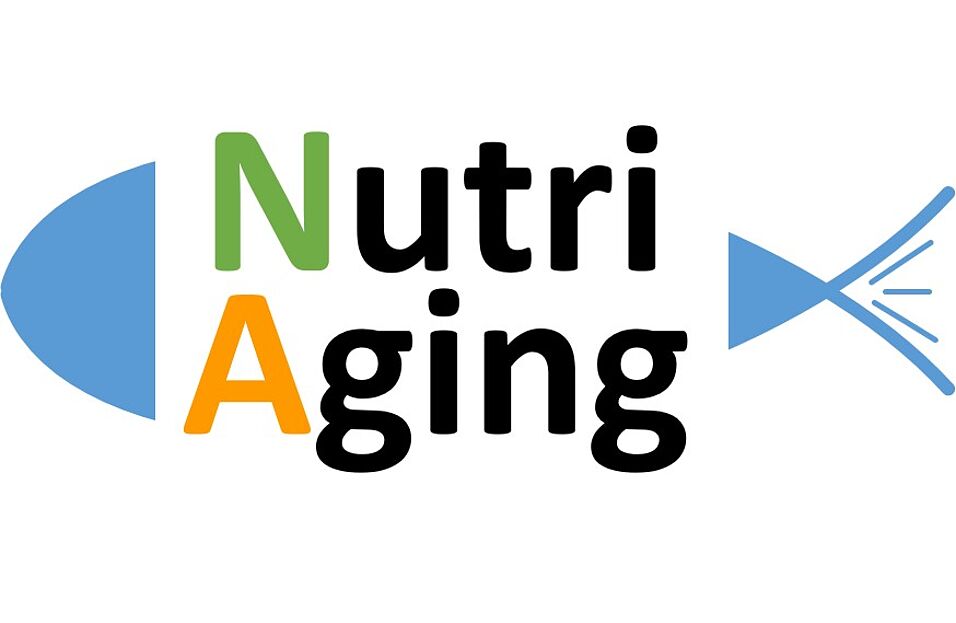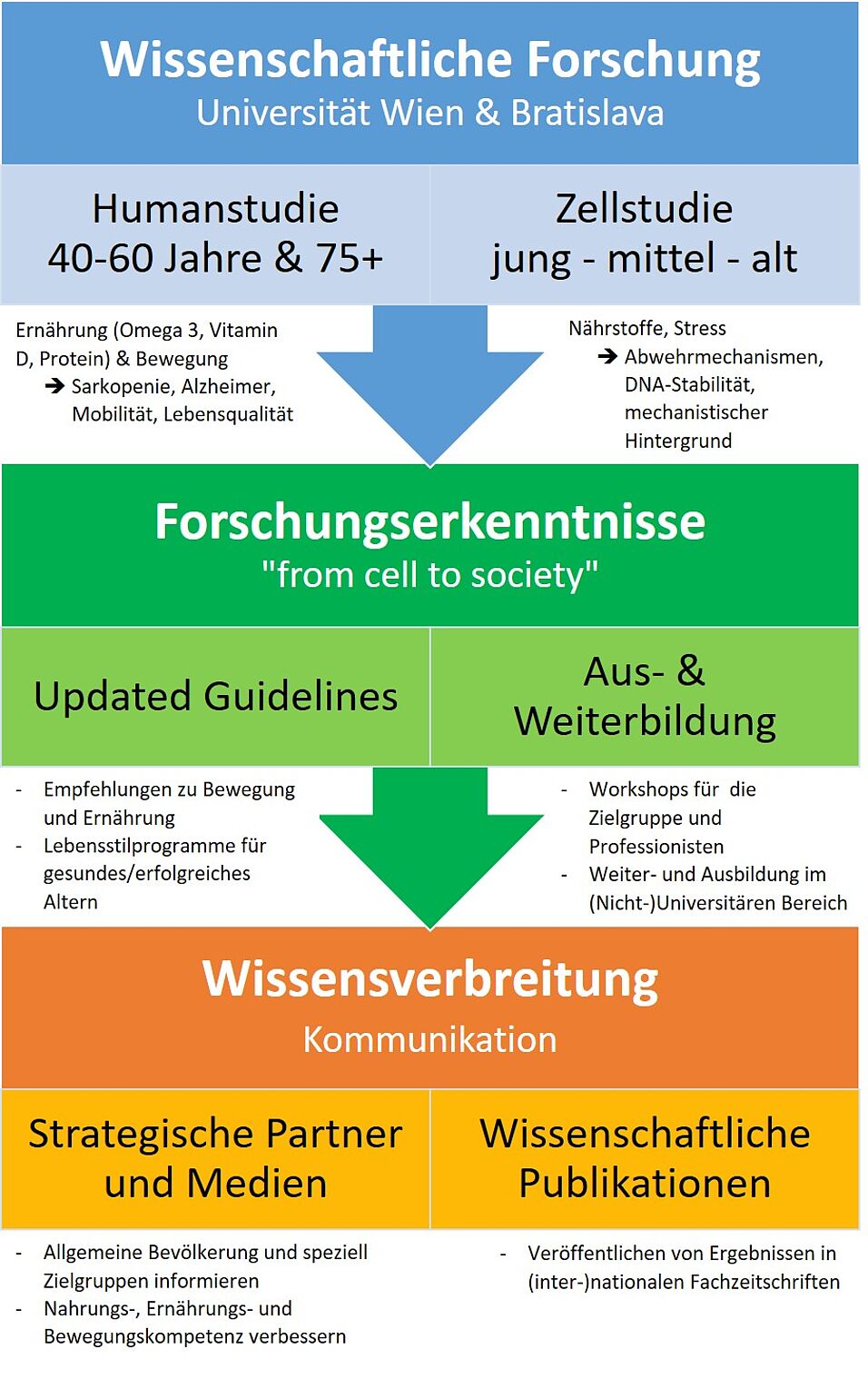Funding Body: EU, Interreg Solvakia-Austria (2014-2020), European Regional Development Fund
Project homepage: http://www.nutriaging.eu/index.php?lang=at
Duration: 2017 - 2021
Principal Investigator:
Karl-Heinz Wagner
Core Project group:
Dr. Bernhard Franzke
Patrick Zöhrer, PhD student
Sandra Unterberger, PhD Student
Agnes Draxler, PhD student
Dr. Eva-Maria Strasser, Inst. für Remobilisation und funktionale Gesundheit, Karl Landsteiner Gesellschaft
Assoz.Prof. Dr. Barbara Wessner
Cooperation partner:
Prof. Dipl. Ing. Zdeňka Ďuračková, PhD
Institute of Medical Chemistry, Biochemistry and Clinical Biochemistry, Faculty of Medicine, Comenius Uniersity, Bratislava, Slovakia
Short description of the first study on protein:
The aging associated loss of muscle mass and strength is a huge burden for every individual and is becoming an immense socio-economic problem with more and more people changing towards institutionalized housing situations, sometimes only a few years after retirement. This step is usually linked to reduced physical activity, worse eating habits and increased risk for diseases development, which is worsening the elderlies’ health even more and consequently might lead to frailty, immobility and dependency on others. In the elderly, the combination of resistance training together with an optimized protein intake seems to be most promising to prevent and/or reduce the development of sarcopenia – the age-related loss of muscle mass and strength. However, compared to younger adults, with advanced age a present phenomenon called ‘anabolic resistance’ produces a state of reduced susceptibility for increasing muscle protein synthesis via exercise and/or nutrition. Elderly people seem to need higher doses of protein and well planned exercise regimes to have similar adaptation responses as younger adults.Importantly, people with better fitness and more muscle mass show less DNA damage, improved antioxidant defense as well as better chromosomal stability, which in turn is linked to a reduced risk for disease development. The aim of our study is to investigate the effect of resistance exercise and optimized protein intake to prevent age-related problems, such as the loss of strength and muscle mass and further link it to cellular biomarkers. Our nutrition-based approach combined with resistance training will generate missing and important scientific and practical information about a healthy lifestyle for the elderly population.Areas of interest to be investigated in detail in addition to the muscular focus: microbiota, metabolomics, DNA health, oxidative stress, functional parameters, nutritional intake data, quality of life, body composition and many more



